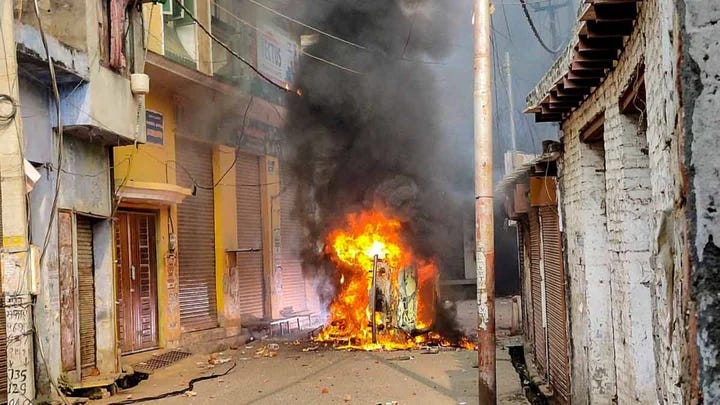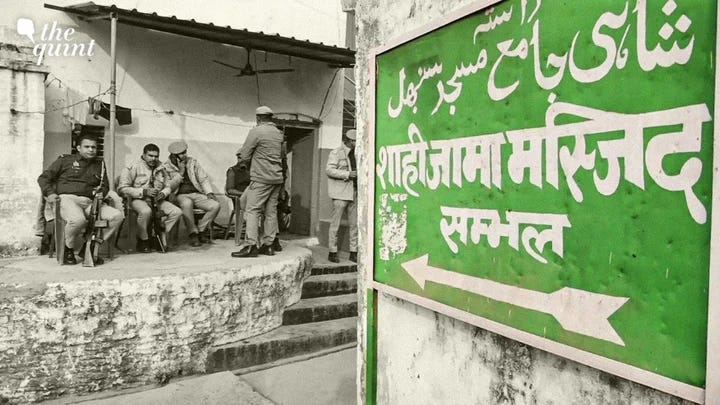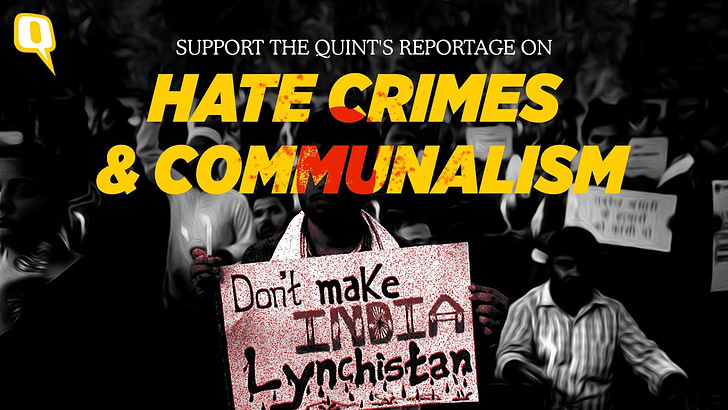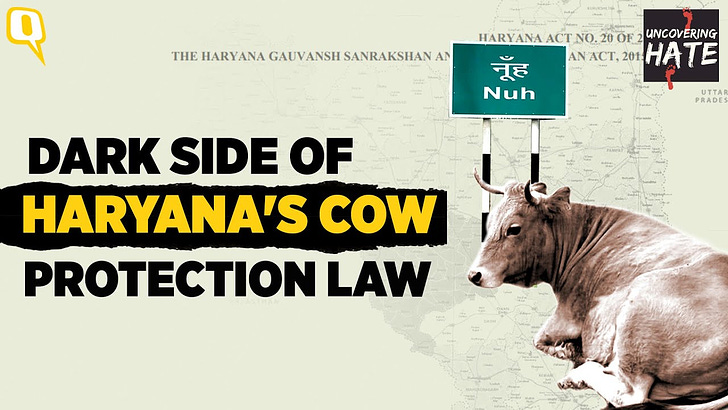The Question is... Has the Places of Worship Act Been Thrown Into Cold Storage?
Our in-depth coverage on 'Uncovering Hate' won't be possible without your support.
Dear Reader,
The Places of Worship Act, 1991 was brought about to prevent disputes and maintain the religious character of places of worship as it existed on 15 August 1947. The Act, however, has been the central theme of controversy since the last decade. District courts have passed numerous orders allowing 'surveys' of religious places (more specifically, mosques) based on the claim that there existed another religious structure (aka temple) before.
If we strictly go by the law, such a process is barred under the Act. But, as seen in the recent clashes in Uttar Pradesh's Sambhal district after a civil court ordered a 'survey' (yet again) of the Shahi Jama Masjid on 18 November, the validity of the Act itself is in question.
The question is... why is this important and what does this mean?
It is important because recent litigations, such as the one in Sambhal, seeking 'surveys' with respect to the 'true nature' of places of worship not only disregard the law but also threaten the constitutional commitment to secularism and communal harmony.
Lest we forget, during the Gyanvapi case, retired Chief Justice of India DY Chandrachud set a dangerous precedent when he observed that “the ascertainment of the religious character of the place of worship is not expressly barred” — that is, the structure’s “original character” could always be determined even though there could be no conversion of the place. The said 'dialogue' has opened a floodgate of litigations as he prima facie did state that the validity of a religious monument can be determined even if it is barred by the Act.
In Sambhal district, the civil court directed an advocate commissioner, Ramesh Chand Raghav, to 'survey' the Shahi Jama Masjid — and the survey reportedly began on the same day, just hours after the court's order.
It is strange that such a 'survey' was ordered on the very first day of the hearing, i.e., without even considering the grounds of the suit's maintainability. The order was implemented before other parties had an opportunity to challenge it, writes Areeb Uddin Ahmed, an advocate practicing at the Allahabad High Court.
Sambhal Violence: Litigations Seeking 'Surveys' Disregard the Law
Worse, it led to a violent stand-off between civilians and the police. The Quint's ground report on the violence can be read here.
Sambhal Firing: 5 Dead, 7 FIRs Lodged But Locals Blame Officials for Violence
It must also be emphasised that in the Ayodhya title dispute, the Supreme Court had asserted, “The Places of Worship Act is intrinsically related to the obligations of a secular state... and is an affirmation of the solemn duty which was cast upon the State to preserve and protect the equality of all faiths as an essential constitutional value, a norm which has the status of being a basic feature of the Constitution."
So, the question is... do cases questioning the religious identity of mosques, and that frequently rely on 'surveys', undermine the clarity and authority of the Supreme Court’s findings in the Ayodhya judgment?
Our in-depth coverage on 'Uncovering Hate' and related issues shaping India today won't be possible without your support. BECOME A MEMBER — and join us in asking these important questions.
Thank you,
SAPTARSHI BASAK
Sr Assistant Editor
Also Read:
*Already a member of The Quint? What a star! Your support empowers us to question everything.
Want us to cover a story? Write to us at editor@thequint.com or reply to this email.








